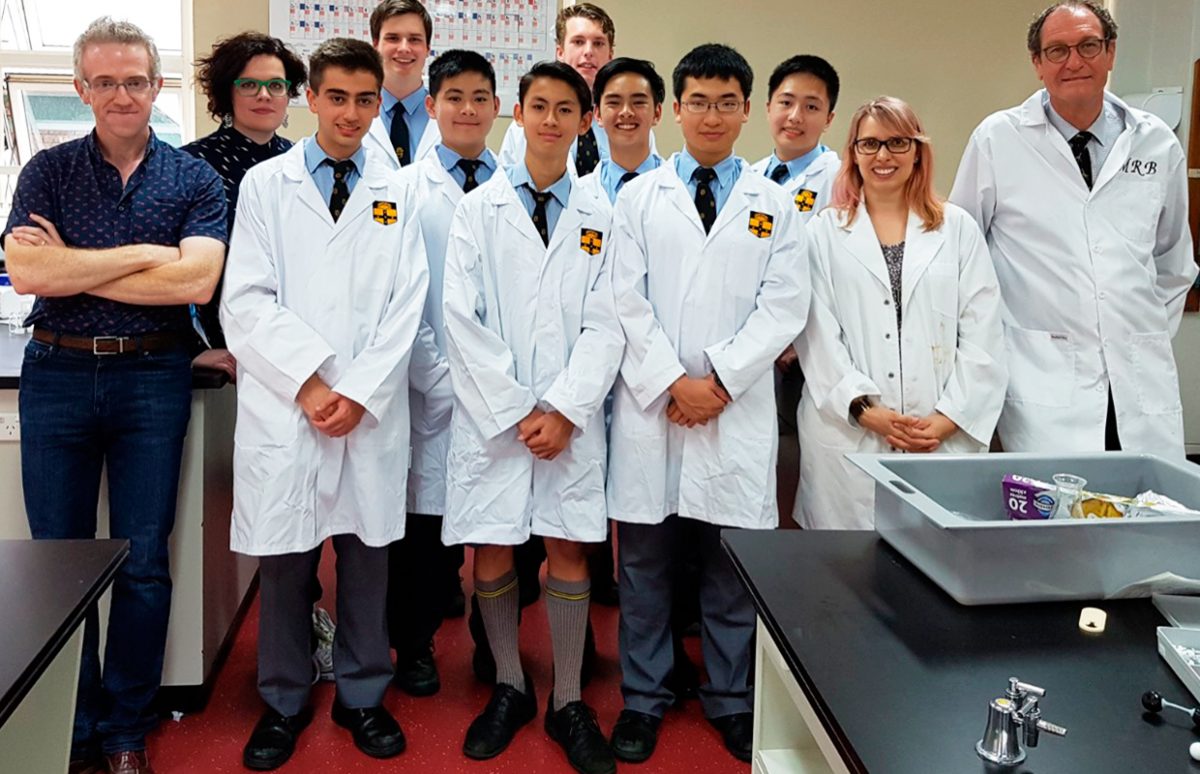When they see injustice in the world, some teenagers take to the streets, or social media to demonstrate. And some take to the science lab. A group of high-school students in Australia have just synthesised an essential medical drug that is at the centre of a pharmaceutical pricing scandal in the U.S.A.
In September 2015, USA Today announced that New York-based Turing Pharmaceuticals had acquired exclusive U.S. rights to Daraprim, an anti-parasitical drug, and promptly increased the price from 13.50 USD to 750 USD per pill. Daraprim (pyrimethamine) was discovered in the 1950s and is considered an essential drug by the World Health Organisation. It is used to treat malaria and toxoplasmosis, particularly in patients with immune deficiencies: those on chemotherapy, living with HIV and AIDS, and pregnant women. The price rise meant that many American patients, even those with health insurance, could no longer afford the treatment.
Turing CEO, 32-year-old Martin Shkreli defended the price rise saying it was a specialised drug for a small market, and that pharmaceutical companies needed to make profits to invest in research into new drugs, or improving existing ones like Daraprim. Candidates in the U.S. presidential election seized on the story as an example of healthcare problems. There was a social media storm, with Shkreli being branded "the most hated man in the world". Turing announced it would look again lowering the price but it still retails today for $375!
In most countries, including Australia, Daraprim sells for about 1 USD a pill. It is no longer covered by patent protection.
Young Scientists
Dr Alice Williams is a research chemist and lecturer at the University of Sydney, and closely involved with Open Source Malaria, which encourages sharing of research to try to speed up progress towards new drugs. She was shocked about the Daraprim price hike. She says, "I thought if we could show that students could make it in the lab with no real training, we could really show how ridiculous this price hike was and that there was no way it could be justified.”
Breaking Good
So she and her colleague Associate Professor Mat Todd encouraged a group of high-school students and their teacher to try to synthesise Daraprim. The group of 17-year-olds from Sydney Grammar School worked at it for a year, keeping an online lab book that allowed qualified scientists to look at their results and offer advice. And finally, in mid-November, 2016, they obtained a pure copy of the drug, at an approximate cost of 2 USD a dose.
The students and their mentors were elated. Of course they haven't discovered a new drug. They don't have the costs of paying staff and completing complicated testing to comply with governmental regulations. They haven't had to take the financial risks that pharmaceutical companies bear. But they have shown the power of collaboration. And sparked some vocations amongst the students to go on to study science. Mat Todd emphasises the value of the experiment in really showing students what a career in science involves, "“With science results you can be presented with a polished finished product that hides the false steps along the way,” he said. “The students’ real-time diary highlights their whole process."
Martin Shkreli, meantime, is awaiting trial for fraud in an unconnected case. Studying science is a wonderful thing but there is also a place in the world for poetic justice.
Middle-school Science Hero
 There are articles about another remarkable young scientist in the Banque de ressources anglais cycle 4 appropriate for A1+, A2 and B1-level pupils. At just 11, Gitanjali Rao invented a test that shows the presence of poisonous lead in drinking water, to help the people of Flint, Michigan.
There are articles about another remarkable young scientist in the Banque de ressources anglais cycle 4 appropriate for A1+, A2 and B1-level pupils. At just 11, Gitanjali Rao invented a test that shows the presence of poisonous lead in drinking water, to help the people of Flint, Michigan.
To see the resources, download them or use them online, register now or log in to the Banque de ressources anglais cycle 4 then go to:
Articles de presse > A1+, A2, B1 > Sciences, technologie et société > " America’s Top Young Scientist".
Copyright(s) :
University of Sydney
> Collaborative Science Online Resources
Tag(s) : "Australia" "BRNE Cycle 4" "collaboration" "economy" "Give Me Five 4e" "medicine" "science" "teenagers"





